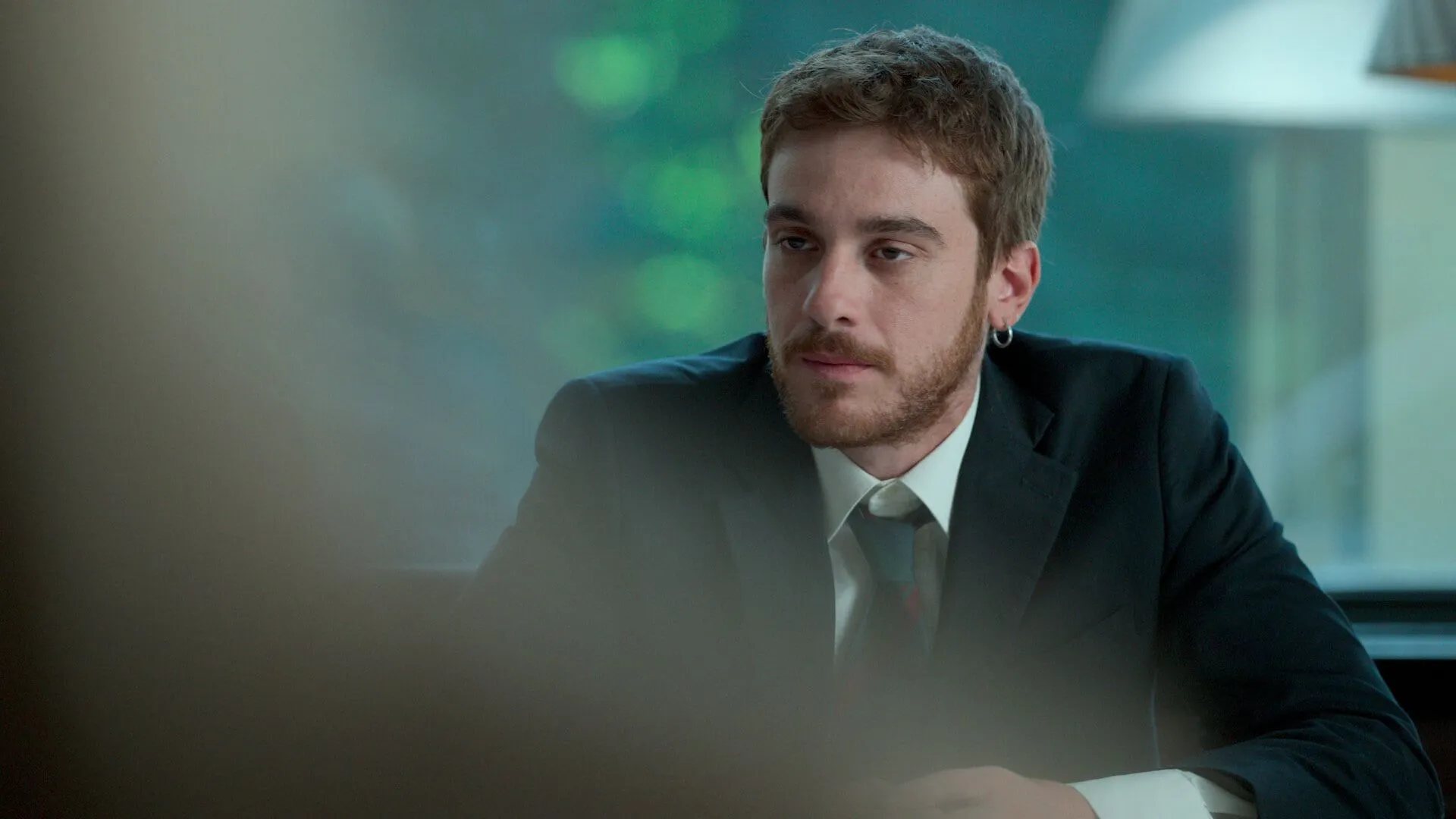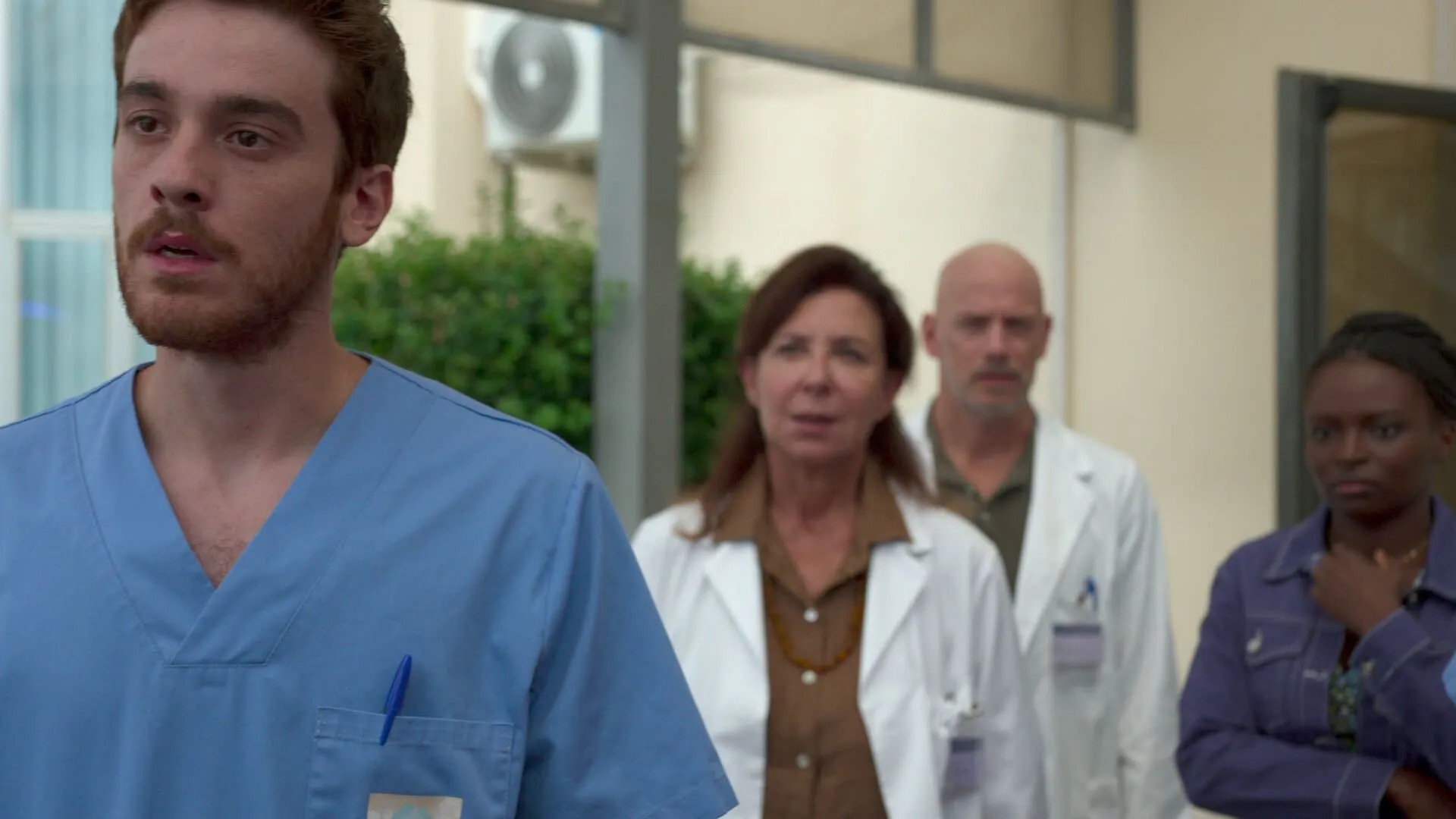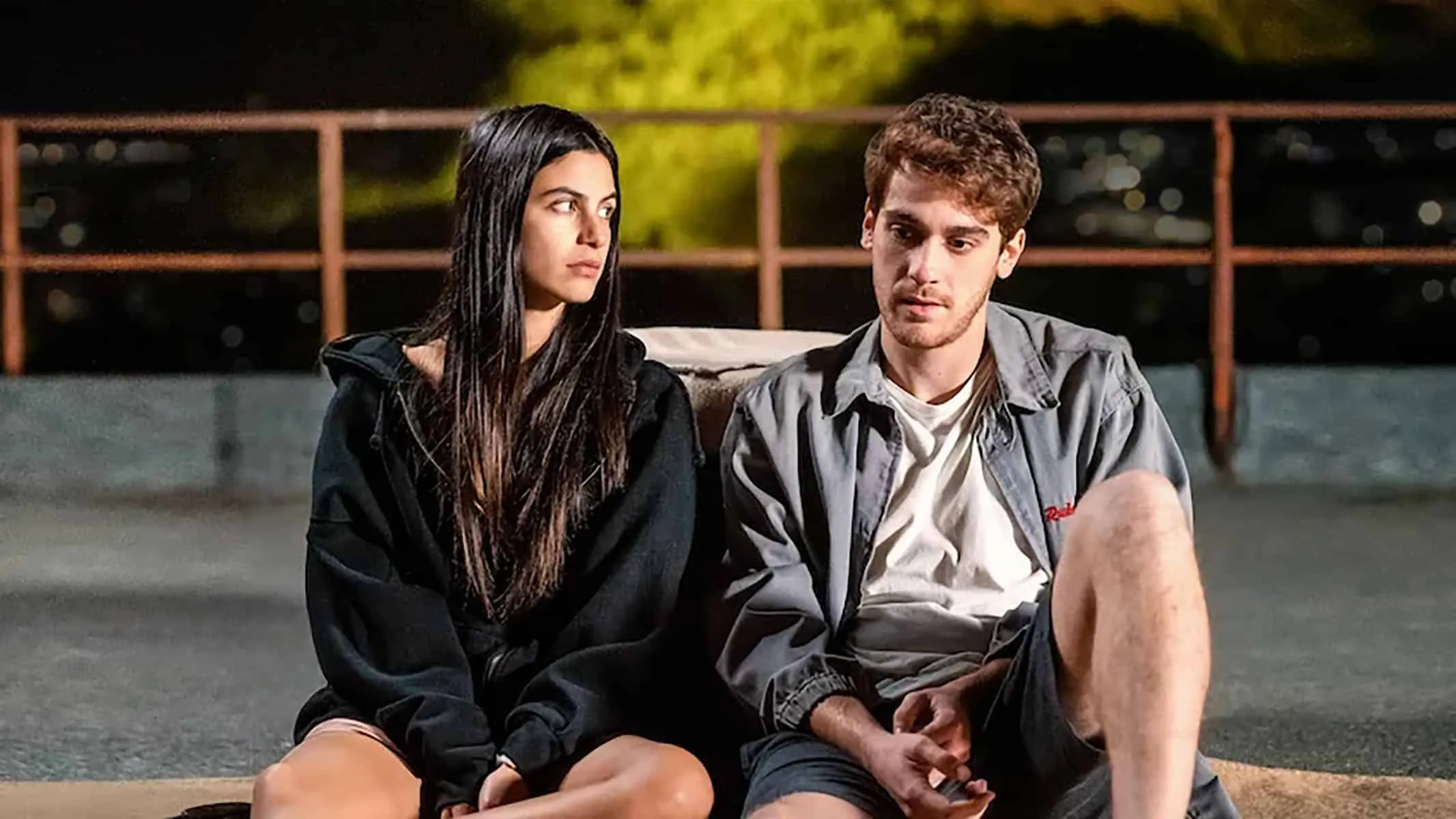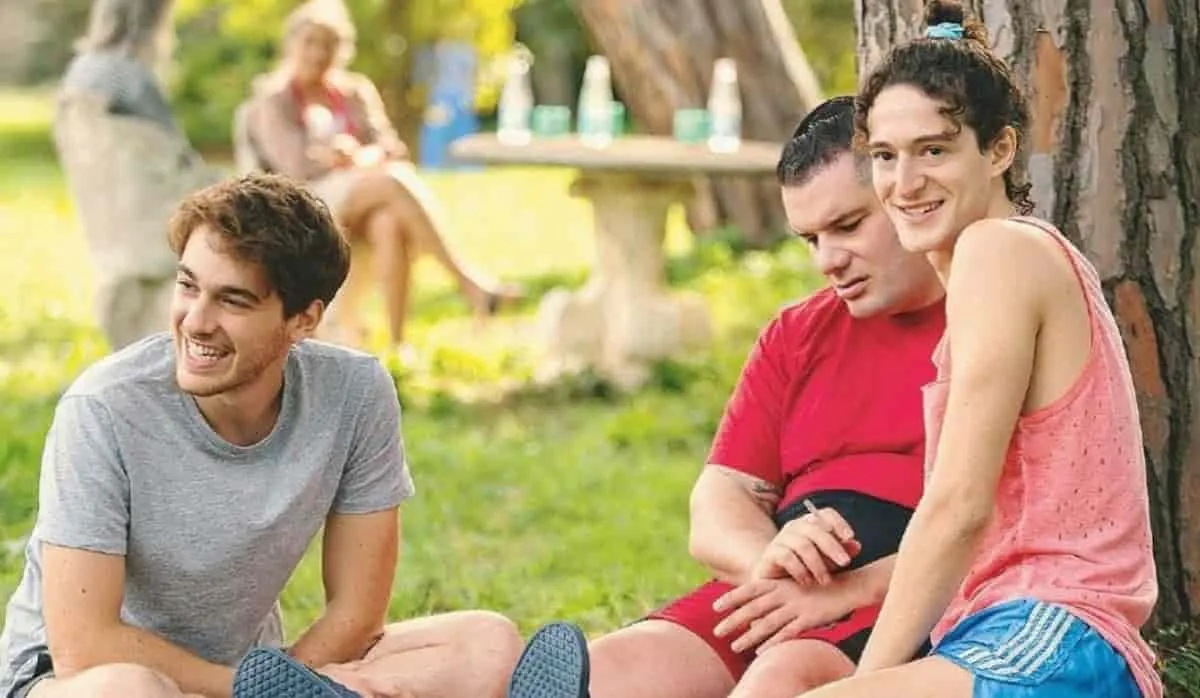“Everything Calls for Salvation” Season 2 places itself at a fascinating intersection of personal and professional identities in a daring narrative move that speaks volumes about the cyclical nature of mental health section treatment. After a two-year break in the narrative, the series changes its protagonist from a psychiatric patient who doesn’t want to be in therapy to someone who wants to work in the field of mental health recovery. This change serves as a plotline and a metaphor for mental health recovery.
The five-episode format (a deliberate cut from Season 1’s seven episodes) mirrors the intense pressures of Daniele’s new position at Villa San Francesco, the same place that once held him back. His architectural and emotional return to the scene of his previous institutionalization creates this psychological palimpsest, where past trauma and current healing share the same physical space.
The Italian healthcare system, presented with unwavering authenticity, develops into more than just a setting; it becomes a character in and of itself, complete with institutional memory and bureaucratic contradictions. The series explores this challenging territory while posing an intriguing question: can a person who has received mental health treatment from “the other side” become a more understanding caregiver, or does having a dual identity lead to an unsolvable conflict of interest?
Daniele’s shift from patient to provider, however hesitant, represents a larger societal change in how we view mental health professionals, upending the long-standing dichotomy of “healer” and “patient” in psychiatric care.
Temporal Labyrinth: The Architecture of Healing and Hurt
The narrative complexity of “Everything Calls for Salvation” Season 2 is multifaceted, weaving professional goals, psychological suffering, and parent recovery into a tapestry of interconnected disasters. At the center of this is Daniele, a 23-year-old trying to find his way through the complicated mental healthcare system while also fighting for his parenting rights. This situation would be tough for anyone with strong emotional stability.
The series tells its story using a technique called “crisis parallelism,” in which Daniele’s professional difficulties at the psychiatric ward (especially his tense interactions with the sexy Rachid and the mysterious Matilde) mirror his issues with custody and identity. In this narrative strategy, each aspect of his life is amplified by the other, forming a psychological echo chamber.
The show’s chronological structure draws attention in particular. Although the narrative frequently breaks this linear progression with emotionally charged flashbacks, each episode represents a week at the hospital (a clever nod to institutional timekeeping). These time breaks, especially those related to Maria’s birth and Daniele’s friendship with Nina, act as psychological checkpoints on the protagonist’s path to self-understanding.
The series’ treatment of its new patient characters is fascinating. Rachid and Matilde aren’t simply narrative devices but rather function as dark mirrors reflecting different aspects of Daniele’s struggles. (One could call this the “patient mirror effect,” where each new clinical case makes our protagonist face his unsolved problems.)
The three-month gap in the finale serves as more than just a convenient narrative device; it represents the needed psychological distance for true perspective—for both the characters and the viewers. Because of this temporal jump, the series can examine how sudden problems can turn into long-term growth.
The resolution of the main storylines deviates from the usual TV rule of neat resolution. Instead, the series chooses an approach termed “therapeutic realism,” in which resolution doesn’t mean problems are fixed but are understood and accepted. In a show dealing with mental health, where the concept of “cure” itself is frequently problematic, this feels particularly real.
The Paradox of Healing: Identity in Professional Purgatory
Daniele appears in Season 2’s intricate tapestry as what might be termed a “liminal healer,” balancing the roles of professional and amateur, parent and healer. Federico Cesari’s nuanced portrayal perfectly captures this psychological balancing act, showing both significant personal growth and painful setbacks, sometimes in the same scene.
The series shows Daniele’s growth through what we might call “institutional irony”: his try to function as a mental health professional while still battling his own mental demons results in both painful self-awareness and unintentional comedy. His conflict with authority now takes on new dimensions as he finds himself on both sides of the power dynamic. This situation becomes especially difficult when dealing with patients who, like Rachid, mirror his former unruly self.
As a sort of moral compass for Daniele’s journey, the ghost of Mario (both literally and metaphorically) haunts the narrative environment. The fact that Daniele chose to give his daughter the name Maria, a linguistic homage to a lost friend, reveals the significance of memory and duty in his psychological growth.
Nina’s character development is interesting, but it unfolds more gently. Her maternal instincts conflict with her mental health journey, creating what could be called a “parallel recovery narrative” that both supports and complicates Daniele’s narrative. We are unsure about her reasons for fighting for custody. Is she trying to protect Maria from Daniele’s unpredictability, or is she reflecting her worries?
As a Greek chorus of mental health states, the new patient trio (Rachid, Matilde, Paolo) represents various aspects of mental health struggles. Matilde, whose body image problems and suicidal thoughts serve as a dark mirror to the institutional power dynamics at play, is particularly fascinating. The hospital staff, especially Dr. Mancino and Dr. Cimaroli, try to keep a professional distance and connect with people. Now, their former patient, who is now a coworker, needs to learn how to do the same.
Institutional Poetry: The Metaphysics of Mental Health
In its sophomore season, “Everything Calls for Salvation” elevates its thematic explorations beyond mere institutional critique into what might be termed “psychiatric poetry” – where the boundaries between sanity and madness, professional and personal, healer and patient blur into a compelling meditation on human consciousness itself.
The show’s treatment of mental health stigma is particularly nuanced because it puts Daniele in a unique situation where he is a former patient who now helps others. The series can examine how institutional power structures maintain and occasionally overcome traditional mental health stigmas thanks to this special viewing point.
The series’ main ideas are reflected in Parenthood, which becomes a fascinating lens. Daniele’s fight for Maria’s custody becomes more than just a story device; it also serves as a metaphor for society’s larger issues with mental health and capability. Who decides who is suitable to care for someone else? The narrative is not blind to the irony of a mental health professional being thought possibly unfit to be a parent.
The series uses poetry as what might be called an “emotional pneumatics” – a system for releasing and controlling psychological pressure. Daniele’s poems are not just art; they also help diagnose issues, provide therapy, and sometimes show a need for help. This literary theme blends well with the show’s dream scenes and flashbacks, creating a tapestry of altered states that makes us wonder about “normal” perception.
The hospital serves as what we might call a “symbolic palindrome” because it represents both Daniele’s downfall and his chance for forgiveness. The labyrinthine paths of the mind, where salvation and damnation frequently coexist, are physically represented in the hospital’s hallways, wards, and treatment rooms.
Throughout the season, the concept of salvation changes, evolving from its traditional religious connotations into something more nuanced, perhaps what we might call “secular grace,” where redemption comes not from above but rather from the hard, messy work of connecting with others and accepting oneself.
Aesthetic Dichotomies: The Visual Language of Mental States
Season 2 uses what could be termed “therapeutic luminescence,” a visual technique that bathes even its darkest moments in Mediterranean sunlight. This daring departure from the typical grim aesthetics of mental health narratives establishes a fascinating tension between content and form, suggesting that even the brightest places can have darker elements.
Due to their “reality-adjacent” quality, the dream sequences deserve special attention. Instead of using clear signs that things aren’t real, the series uses minor changes that make viewers question what’s real. This cleverly mirrors Daniele’s complicated relationship with reality. The musical scenes, especially the big dance in Episode 3, serve as what we might call “psychic release valves,” allowing for emotional expression that goes beyond the bounds of realistic drama.
Federico Cesari still inhabits Daniele with amazing dexterity, often in the same scene. The character’s precarious position between worlds is amply demonstrated by his physical performance, which includes a small tension in his shoulders when dealing with authority and an unconscious mirroring of patient behavior.
Fotin Peluso plays Nina with strong maternal energy, creating what might be called “protective antagonism.” Her conflict with Daniele is motivated by a complex web of love, fear, and protective instinct rather than hatred. The chemistry between the two stars is filled with unspoken tension, and their shared past adds nuance to every action.
Each performance is carefully calibrated to reflect various aspects of institutional life, and the supporting cast functions as an emotional Greek chorus. Every character plays an important part in the ward’s delicate emotional balance, which we might term a “psychiatric ecosystem” because of their combined presence.
Therapeutic Closure: The Dialectics of Resolution
Season 2 achieves what could be termed “narrative symmetry” in its final scenes by wrapping up its various storylines while still retaining the inherent messiness of mental health narratives. Instead of offering what we might call “provisional closure,” or endings that feel both satisfying and realistically incomplete, the show avoids the temptation of neat resolution (what lesser series might call “therapeutic bow-tying”).
Daniele’s transition from patient to provider reaches what might be called a “professional paradox”; his biggest strength as a mental health worker comes from understanding his challenges. This represents a fascinating change in how mental health professionals are portrayed in the media, suggesting that vulnerability may be a more effective therapeutic tool than clinical detachment.
The season’s discussion of institutional power relations is particularly nuanced. It examines what we might call “institutional ambivalence,” or how systems can both help and hurt, support and suppress, as opposed to simply using simple anti-establishment messages, which is an easy trap for mental health narratives.
In favor of something more complex, what might be termed “therapeutic realism,” the resolution of character relationships, especially between Daniele and Nina, avoids romantic or dramatic cliché. Their final scenes imply that sometimes the healthiest resolution isn’t reconciliation but mutual acceptance of irreconcilable differences.
The season’s conclusion suggests that the term “salvation” may not be accurate. Mental health is an ongoing process of balancing one’s feelings, society, and sanity rather than a destination. This viewpoint sees the series as an important part of modern mental health care and recovery discussions.
The Review
Everything Calls for Salvation Season 2
The second season of "Everything Calls for Salvation" goes beyond the typical sophomore slump by providing a nuanced look at mental health without providing simple fixes or typical resolutions. The series offers a meditation on healing that feels current and timeless thanks to its masterful blending of personal and professional storylines, vibrant visuals, and intricate character work. Despite its occasionally rambling middle episodes, the show's dedication to accurately portraying mental health issues, along with Federico Cesari's outstanding acting, makes a strong case for the importance of vulnerability in care and storytelling.
PROS
- Nuanced portrayal of mental health issues
- Strong character development, especially Daniele
- Innovative visual style and dream sequences
- Complex exploration of professional ethics
CONS
- Pacing issues in mid-season episodes
- Some subplot resolutions feel rushed




















































